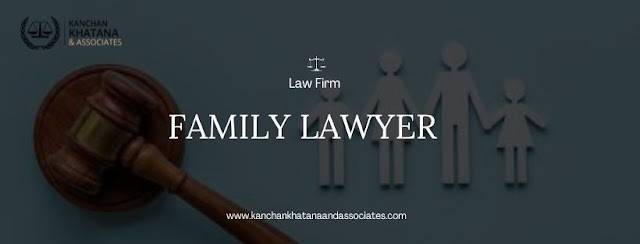An Employee Code of Conduct (CoC) is a vital document that defines the expected behaviors, ethical principles, and professional standards employees must adhere to within an organization. A well-designed CoC aims to foster a positive, inclusive, and professional work environment while protecting the interests of both the organization and its employees. In India, designing and drafting an Employee Code of Conduct requires careful alignment with relevant legal frameworks, including labor laws and employment standards.
This article will outline the key elements of designing and drafting an Employee Code of Conduct with special reference to Indian law.
1. Understanding the Need for a Code of Conduct
The primary purpose of a Code of Conduct is to:
• Provide clear behavioral expectations.
• Uphold the organization’s values and culture.
• Prevent unethical practices such as harassment, bribery, and fraud.
• Comply with legal requirements, including labor laws and regulatory norms.
• Establish guidelines for dealing with conflicts, misconduct, and grievances.
A well-drafted Code of Conduct serves as a preventive measure and a tool for conflict resolution. It should provide clarity on acceptable and unacceptable behavior and clearly outline consequences for violations.
2. Key Elements of a Code of Conduct
While designing a CoC, it’s essential to include the following key elements:
a) Compliance with Legal Standards
The Code of Conduct must comply with relevant Indian laws, including:
• The Industrial Employment (Standing Orders) Act, 1946: This law mandates that organizations formally define and communicate their employment conditions, including disciplinary action and misconduct.
• The Indian Penal Code (IPC), 1860: Provisions under IPC, such as Sections 354 (outraging modesty), 509 (sexual harassment), and 420 (fraud), should be referenced where applicable.
• The Sexual Harassment of Women at Workplace (Prevention, Prohibition, and Redressal) Act, 2013: This law requires organizations to have specific guidelines in their CoC to prevent sexual harassment and ensure redressal mechanisms.
• Labour Laws and Wages: The code should include compliance with the Payment of Wages Act, 1936, and Minimum Wages Act, 1948, to ensure that fair wages and overtime practices are followed.
b) Ethical Standards
The Code must emphasize ethical standards, such as:
• Integrity and honesty in professional dealings.
• Respect for others, diversity, and inclusion.
• Confidentiality and data protection practices, especially in line with the Information Technology Act, 2000 and forthcoming Personal Data Protection Bill.
c) Disciplinary Actions
The Code should clearly define:
• What constitutes misconduct (e.g., insubordination, theft, or fraud).
• Consequences of violations, including verbal warnings, written warnings, suspensions, and terminations.
• The process for investigating misconduct, ensuring it complies with the Principles of Natural Justice under Indian law, such as giving the accused a fair chance to present their side.
d) Anti-harassment and Anti-Discrimination Policies
The Code must strictly outline anti-harassment policies. In India, the law mandates the prevention of sexual harassment through the POSH Act, 2013, requiring every workplace to create awareness and offer a grievance redressal mechanism.
e) Health and Safety Standards
The Code should include a section on workplace health and safety, in compliance with the Factories Act, of 1948, and the Occupational Safety, Health, and Working Conditions Code, of 2020, which emphasize safe working conditions and accident prevention.
3. Steps to Design and Draft the Code of Conduct
a) Involve Key Stakeholders
Before drafting, HR departments should consult various stakeholders, including legal advisors, senior management, and employee representatives. This helps ensure the Code is comprehensive and representative of the organizational culture.
b) Structure of the Code
The Code of Conduct should be structured logically, typically beginning with an introduction to the company’s mission, values, and culture, followed by detailed sections covering specific behaviors and actions.
A standard structure might include:
1. Introduction and Purpose
Explanation of the purpose of the Code and its alignment with the company’s core values.
2. Scope and Applicability
Details of who the Code applies to, typically covering all employees, contractors, and vendors.
3. General Conduct Guidelines
Principles such as maintaining professionalism, respecting colleagues, and safeguarding company assets.
4. Specific Prohibited Behaviors
A list of actions considered unacceptable, such as theft, harassment, dishonesty, or conflicts of interest.
5. Disciplinary Process
Outline of how violations will be investigated and dealt with.
6. Reporting Mechanisms
Channels for reporting violations, including anonymous reporting, grievance redressal procedures, and whistleblower protections.
c) Legal Review
Before implementation, the Code must be reviewed by legal experts to ensure compliance with Indian labor laws and any other sector-specific regulations.
d) Communicating the Code
Once drafted, the Code should be effectively communicated to employees through training sessions, workshops, or internal communication channels. Employees should sign an acknowledgment confirming they have read, understood, and agreed to comply with the Code.
4. Enforcement of the Code of Conduct
A Code of Conduct is only effective when consistently enforced. Employers must set up internal mechanisms to handle violations fairly and transparently. Non-compliance should trigger appropriate action in line with the disciplinary guidelines laid out in the Code.
5. Updating the Code of Conduct
As regulations evolve and new ethical considerations emerge, the Code should be reviewed and updated periodically. In India, for instance, changes in data privacy laws or labor codes might necessitate adjustments to the existing CoC. It is crucial for organizations to remain compliant with these legal shifts and to align the Code with contemporary standards.



%20and%20Advantage%20and%20Disadvantage%20(2).png)
%20PoliciesPractices%20and%20Compliance%20Audit.png)